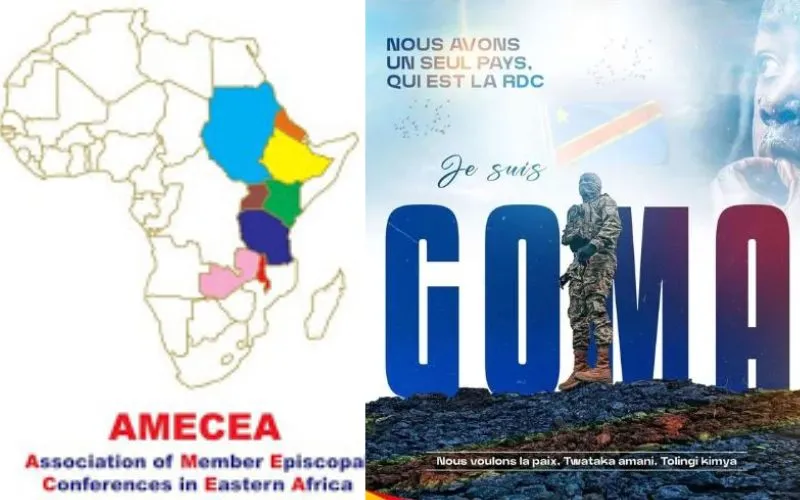He added, “We urge regional leaders not only to respond to the immediate crisis but also to commit to long-term peacebuilding, justice, and reconciliation across the Great Lakes region. Through your dedication and decisive action, we trust that the suffering of the people of the DRC will come to an end, allowing peace to flourish once again.”
On February 8, the Southern African Development Community (SADC) and the East African Community (EAC) convened a summit in Dar es Salaam, Tanzania, to discuss the conflict in Eastern DRC.
At the summit, leaders of the regional blocs urged all warring parties to hold peace talks within five days, including with the M23 rebels.
Nearly 3,000 people have been killed since January 27 when M23 rebels reportedly captured the city of Goma.
In the AMECEA statement, Bishop Kasonde expresses solidarity with the victims of the ongoing conflict in DRC, saying, “We, the members of AMECEA, stand in unwavering solidarity with you during this painful and challenging time.”
“Our hearts go out to all who have lost loved ones, those who have been displaced, and all who continue to endure the tragic consequences of this conflict. In a special way, we remember the most vulnerable-children, elderly and the injured in our prayers,” he says.
On behalf of AMECEA member Bishops, the Local Ordinary of Zambia’s Solwezi Diocese assures the affected individuals of their love, compassion and solidarity. “During this time of suffering, we are reminded of our shared humanity and the divine truth that we are all created in the image of God,” he says.
Bishop Kasonde further appeals to the SADC and the EAC to intensify their efforts in restoring calm in DRC to stop the people’s suffering.
“Those suffering in the DRC need your unwavering commitment to peace, stability, and the protection of human dignity,” the Chairman of AMECEA says in his address to the two regional blocs, and urges the international leaders to “prioritize the protection of human rights, ensuring that the dignity of every individual is upheld amid the violence.”
He calls for measures to ensure the displaced and vulnerable are well taken care of by providing humanitarian aid in collaboration with the faith based and international organizations.








